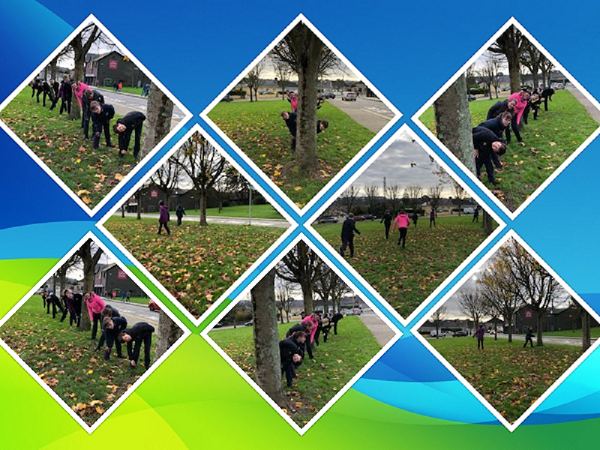Erasmus & eTwinning
What is Erasmus+?
Erasmus+ is the European Union Programme for education, training, youth and sport.
All schools, pre-primary, primary and secondary are all welcome to join Erasmus+.
Funding is available for staff mobility projects and cross-border partnerships. Whole classes or groups of pupils can visit partner schools, and individual pupils can spend a longer period at a school in another country.
Erasmus+ is for:
- Higher Education
- Adult Education
- Vocational education and training
- Youth
- Schools
- Sport
What Erasmus+ can bring to the school
- Professional development opportunities for teachers and staff
- Teachers, staff and pupils can get to know another European Country
- Expand pupils’ horizons, raise their aspirations and boost their life skills
- Connect with other schools throughout Europe
- Forge links with businesses, policymakers, youth organisations and other partners in your own country and across Europe

School Education – Priorities
-
Strengthening the profile/s of the teaching professions
-
Promoting a comprehensive approach to language teaching and learning, building on the increasing linguistic diversity in schools
-
Tackling Early School Leaving and disadvantage
-
Addressing under achievement in basic skills of maths, science and literacy
- Cultural heritage & Inclusion
- Building capacity for organisation and recognition of learning periods abroad
-
Enhancing the quality of Early Childhoodeducation
Key Action 1
Learning Mobility of Individuals
This Key Action supports mobility projects in the field of education, training and youth. Projects are expected to bring positive and long lasting effects on the participants and the participating organisations and the mobility activities are expected to produce some of the following outcomes:
- Improved professional competences
- Greater understanding and responsiveness to social, linguistic and cultural diversity
- Improved foreign language competences
- Capacity to trigger changes in terms of modernisation & international opening within their educational organisations
- Increased ability to address the needs of the disadvantaged
Key Action 1 Projects aim to…
Support the professional development of school staff through mobility projects that comprise;
- A professional development project of 1 to 2 year duration that is framed within a European Development plan for the organisation which is aimed at modernising and internationalising their mission
- The project responds to clearly identified staff development needs
- It involves appropriate selection, preparation and follow up measures
- Ensures that the learning outcomes are disseminated and widely used within the organisation
‘Not just Irish, but also European’: How a school garden gave eTwinners in Ireland a gateway to the European community.
Our Lady of Fatima School is a school in Ireland for those with mild general learning difficulties. Being involved with eTwinning, the school participated in a project with partners from Turkey, Ireland, Albania, North Macedonia, Czech Republic, Greece and Romania to transform a garden space that wasn’t maintained. The project turned an abandoned garden space into a source of confidence and international cooperation for the students.
‘There was a garden between a couple of classrooms within the school and it wasn’t really maintained’, said Niall Bridges, a teacher at Our Lady of Fatima School in Wexford, Ireland. And that would become the beginning of the eTwinning project ‘Adventurous Learners’.

The school caters to students with mild general leaning difficulties and has been part of the eTwinning community since 2009. One of the first few projects that the school participated in dealt with cultural expression. Students would write Christmas cards to their new European project partners where they explained how they celebrated Christmas in Ireland and got to hear how their partners celebrated their holidays.
The Adventurous Learners project took place during the pandemic, with other project partners from Turkey, Ireland, Albania, North Macedonia, Czech Republic, Greece and Romania. While repairing the garden, students learned how to plant plants and how they grow. Students also created a wooden calendar made of Ash wood to symbolise the months.
They even created a birdfeeder to attract a wider variety of visitors to their newly repaired garden.
‘Huge benefits for the pupils; their confidence, their self-esteem’, says teacher Gayle Weld. Project partners had regularly scheduled check-ins via zoom to show their progress. Weld says that students became more confident while communicating with students from other countries and cultures.
‘Just being able to communicate with them and see that they’re not the only people in the world in their little county Wexford’, says Weld.
Although, the project wasn’t without hardships, especially when dealing with in person COVID restrictions. Teacher Melissa Sinnott says that ‘often work was slow. We had to social distance and work in smaller groups. However, it was great fun and a wonderful experience.’ In addition to giving students greater confidence, the principal of Our Lady of Fatima School, Glenda McKeown says that eTwinning ‘extends the wall of the classroom. Our children now realise that they are European citizens, not just Irish citizens.’
She encourages teachers and principals alike to consider joining eTwinning. ‘Link it with your curriculum. Look at an area that needs to be improved. No extra work, but more interesting work.’

